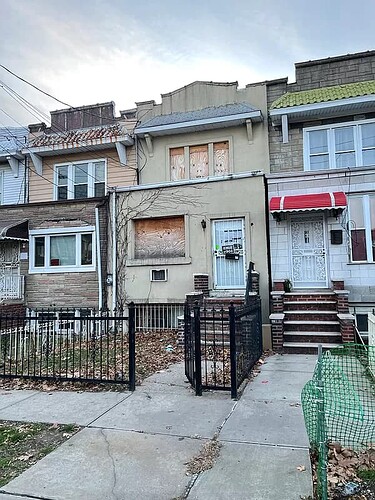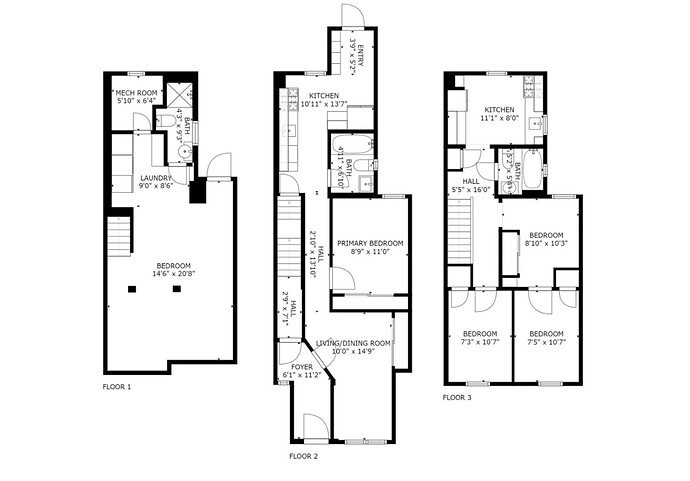This what I have been saying when it come to these flimsy arguments being made to justify the huge run up in real estate prices. Looking at that chart, the historical average looks like it is somewhere around 27%.
30% is way higher than i thought i would have guessed maybe 10-15% bought with cash.
lol. A house was sold 5 down from mine 16 months ago, it was bought for $300,000. Today it was put up for sale for an ask of… $470,000.
Yea there are houses in our neighborhood with less square footage and fewer upgrades going for 2x what we paid for our house.
Interesting that the last surge in all cash buying occurred directly after the market crash.
I think it’s mostly because banks became super tight with their lending requirements and basically made sure everybody they approved for a mortgage was vastly overqualified.
I’d be a little leery of that all cash purchase % without knowing more about the data. There are a lot of RE transactions with prices of 1$ and such.
All this can be yours for $250k
CASH ONLY, NOT A CLEAR TITLE – REO Bank Owned SECOND LIEN POSITION foreclosure. SUBJECT TO FIRST LIEN POSITION MORTGAGE. “AS-IS” sale with no contingencies or inspections.
People make cash offers but they still get a loan so they have that cash available to spend/leverage for other shit. Some of that stuff includes buying investment properties to rent out and vacation homes which are directly relevant to the housing market.
Even if they weren’t going to buy other properties, they are still counting on the loan so that they can have free cash, i.e. they don’t want to be house poor even in a paid off house.
Also interest rates are relevant to investment firms buying up properties, both in terms of their carrying costs (even if they are “paying cash” there is an investor/lender somewhere expecting a return from them) and the attractiveness of other investments.
At a high level the case for an exuberant market, and a recession generally, is that the government and Fed flooded the economy with cash to prevent a depression during COVID and are now turning the spigots off and even suck some of it back in to fight inflation. The counterpoint is that this will just result in prices plateauing rather than dropping. As has been the case historically, I think that is probably true for top top locations but who knows elsewhere.
How the hell is that 2239 sq ft, does it go back like 3 blocks?
Finished basement? I really want to see the floor plan. It has 3 bedrooms and I can’t imagine how all of them get sunlight.
Redfin thinks it’s worth $605k. Last sold for $406k in 2006.
Here’s a home that’s pretty similar nearby for $900k:
https://www.zillow.com/homedetails/25-77-99th-St-East-Elmhurst-NY-11369/2065644129_zpid/
On the plus side, very few windows to clean!
Here’s a crazy one with 5 bedrooms and 2 kitchens. Guessing they rent the top floor out to people who don’t need a living room.
https://www.trulia.com/p/ny/flushing/3004-94th-st-flushing-ny-11369--448798?mid=0#lil-mediaTab
The main reason I lean away from expecting a bubble and ensuing crash is that institutional investors were paying these prices or more in cash over the last 6-12 months. So they clearly think the long-term value is there, and they would likely provide a floor on housing prices if they dropped much from here.
I think over the long term, in most decent housing markets, they’re trying to effecrively corner the market and trap people as permanent renters.
Or if they did need one, they could easily convert one of the bedrooms into a living room space.
This is kind of scary based on the number of references he makes to interest rates staying low.
Got my rate quote at 5%. Gross
Ah, kids today. I remember paying close to 9% for my first house in 1992.
Double the home price, cut rates in half. It’s a wash.
Google Translate…
Boomer Speak:
to
Millennial Speak:
Please punch me in the face repeatedly as hard as you can!!!
(It added the exclamation points, not me.)

